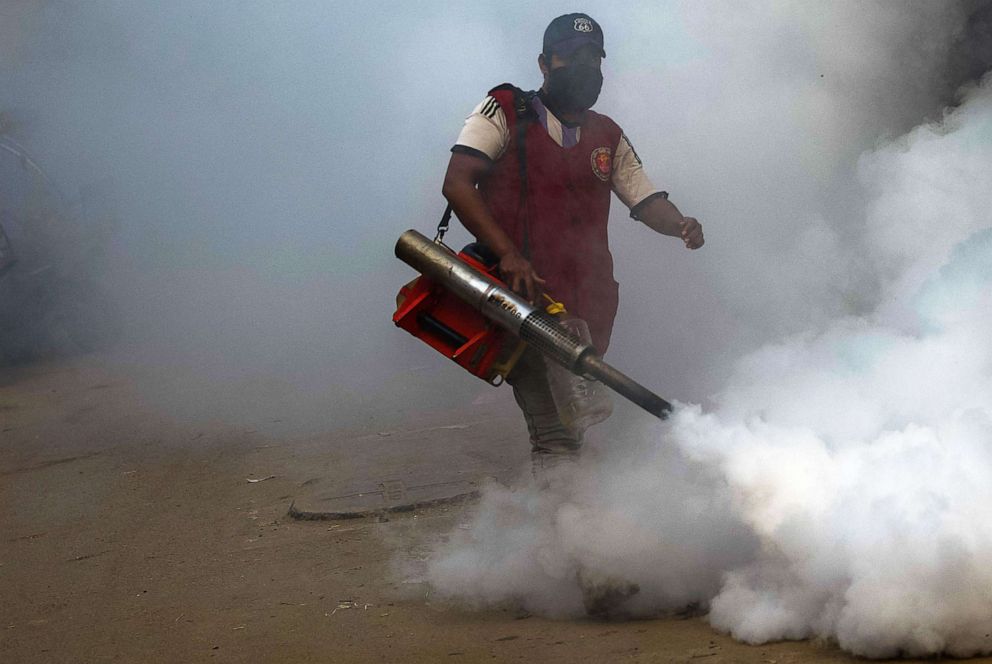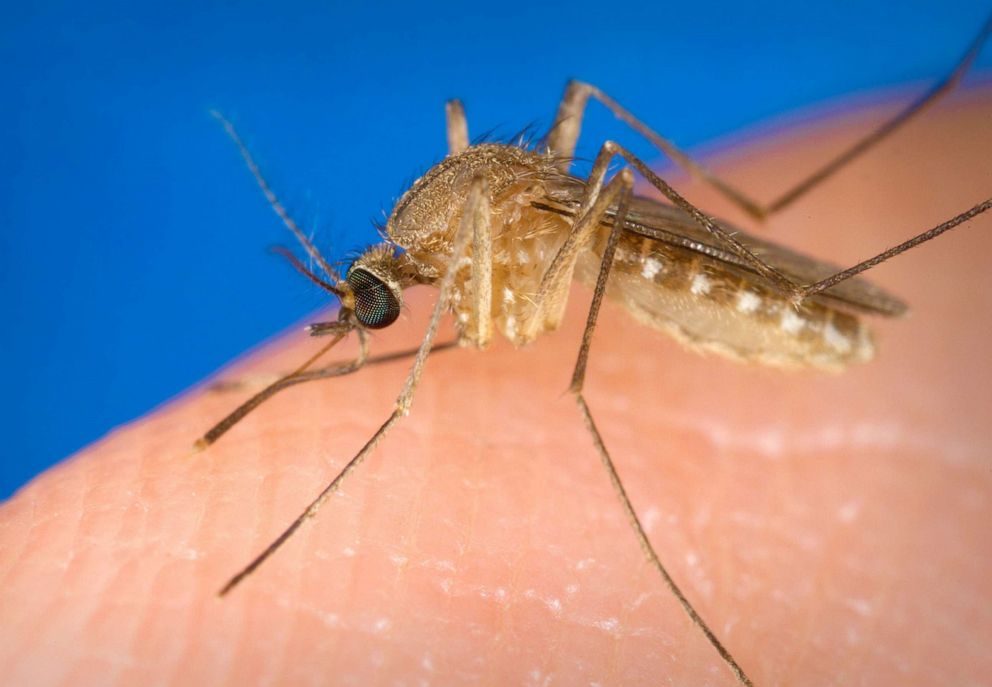Mosquitoes are so smart they're learning how to avoid pesticides used to kill them, study says
Mosquitoes that had been exposed to pesticides figured out how to steer clear.
Mosquitoes may be smarter than we think, and that could make getting rid of them and the diseases they carry even more difficult, according to new research.
Scientists who studied two species of mosquitoes that spread diseases such as dengue, Zika and West Nile fever -- Aedes aegypti and Culex quinquefasciatus -- found that the females learned to avoid pesticides after a single non-lethal exposure, a study published Thursday in Scientific Reports found.
The researchers exposed the female mosquitoes to non-lethal doses of common anti-mosquito pesticides and found that mosquitoes that had been pre-exposed to a pesticide avoided passing through a pesticide-treated net in order to reach a food source at a higher rate than those who had not been pre-exposed, according to the paper.
In addition, the survival rate of pre-exposed mosquitoes was more than double that of mosquitoes that had not been pre-exposed.

The findings suggest that mosquitoes that have been exposed to non-lethal doses of pesticides learn to avoid these pesticides and, as a result, may seek out safer food sources and resting sites, allowing them to survive to reproduce.
Pre-exposed mosquitoes were also more likely to rest in a container that smelled of a control substance, rather than in a container that smelled of a pesticide, the researchers found.
Pesticide resistance has increased among mosquitoes in recent decades, but the extent to which has been unclear until now.
"Mosquitoes have been learning," Frederic Tripet, a behavioral ecologist and director at the Centre for Applied Entomology and Parasitology at Keele University in the U.K., told ABC News. "We just didn't know about it."

In 2012, Tripet co-authored another study that showed mosquitoes were capable of learning -- that they could associate different patterns, visual cues, or smells with a positive or negative experience. Those findings suggested that the learning may be relevant to their relationship with pesticides, Tripet said.
"So they're there. They get this first bad experience," Tripet said. "And if we don't kill them at first instance, then they learn to avoid that."
The learning, combined with the physiological resistance to the pesticides, compounds the difficulties in ridding the mosquitoes with pesticides, said Tripet, who collaborated on the research for this study with the Vector Control Unit of University Sains Malaysia in Penang, Malaysia.
New solutions will be necessary to better control mosquito populations, Tripet added. One way may be to devise a chemical compound that has a delayed reaction, therefore if it does not kill a mosquito the first time, the insect will not associate the smell with a negative experience, he said.
Learning can also be disrupted by adding an attractive smell to the mix, Tripet said.




